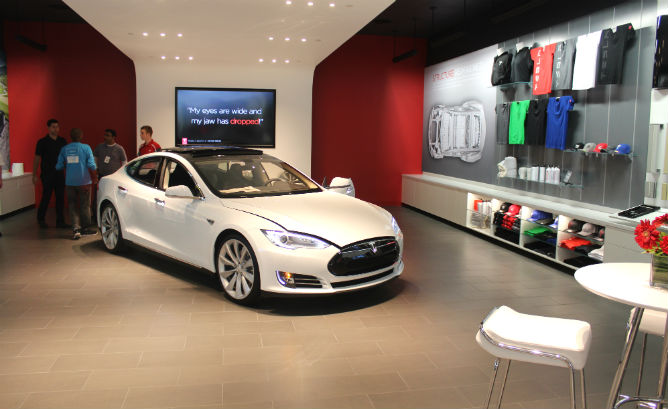Texas Law Doesn’t Allow Tesla to Directly Sell EVs to Consumers
- 26/05/2015
- Transport
- Posted by Tessa Romarez
- Leave your thoughts
Law makers have failed to vote in a two-month effort bills which will allow Tesla Motors to sell electric vehicles directly to their clients.
The current law actually prevents factory-owned companies from selling directly to the public, these bills would have made an exemption to it. These two Tesla driven bills didn’t even make it to the floor, indicating that the company had a very long wait before they can bring it before the Texas Legislators again during this year. The first attempt was made in 2013.
Tesla has a way of bending such rules in Texas by having retail outlets where potential buyers may learn about the company, though the staff employed are not allowed to engage in any direct sales of any sorts.
The company has taken up the matter within other states as well, where it has seen some success, such as in Massachusetts and New York. It’s also won at least one round in Minnesota.
On the hand, North Carolina has proposed another bill that stops Tesla from selling their luxury cars within the state, though this bill doesn’t directly call out Tesla by name, it would still make it against the law for manufacturers to bypass dealerships and sell directly to consumers.
Tesla is actually the only car manufacturer that does not have a dealership. Around 80 consumers in North Carolina already own Tesla’s (this is according to News & Observer) where there will likely be increased interest from potential purchasers as the new Tesla Model S (priced at around $70,000) was named Car of The Year by Motor Trend.
Therefore there is a slight chance that the bill may include exemptions for start-ups such as Tesla, as there around 400 Tesla Model S and Roadsters within the Texas state.
Such legislation blocks may seem like a death blow to the market of electric vehicle son the whole, but it must be remembered that a lot of the electric cars in the market are manufactured by renounced automakers that allow for nation or even worldwide dealerships such as Nissan, BMW, Chevy, Fiat and Ford.
Such blocks are more a barrier to start-up companies like Tesla, who are all competing against other auto-manufacturers designing and developing electric vehicle options into the market. Virginia was another state that denied a dealer licence for Tesla.
Although the company has been welcomed by California (and other states like it), they are looking to expand their reach and network such as creating a nationwide supercharging network during 2015. Such a system will obviously depend on their ability to sell cars at a nationwide level.

